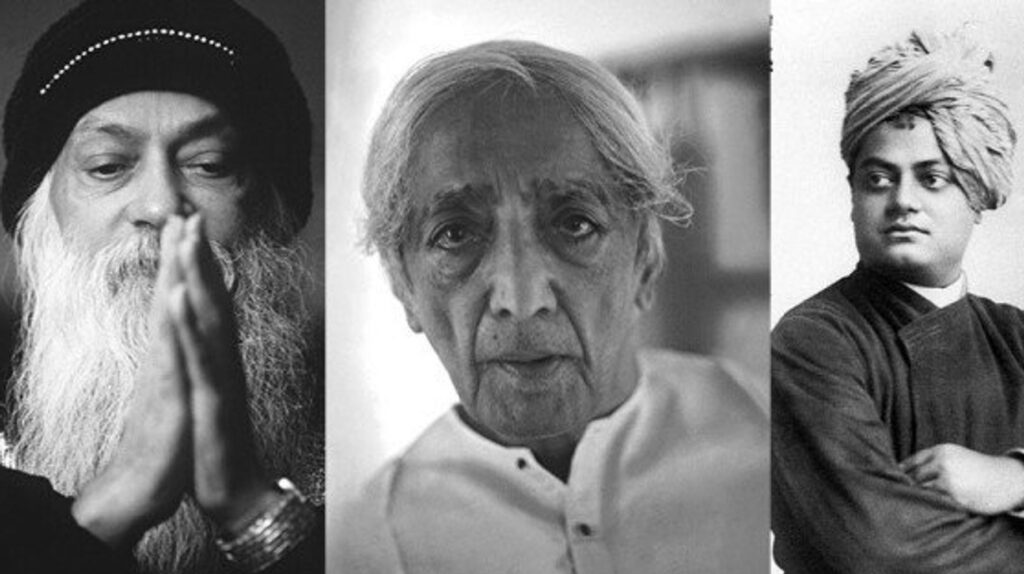India has long been celebrated for its profound wisdom and philosophical depth. Renowned across the globe, several Indian philosophers have made significant contributions to the intellectual and spiritual landscape of humanity. Their timeless insights continue to enlighten people worldwide, guiding them towards a deeper understanding of existence and promoting a better world. This article delves into the lives and legacies of the top ten famous Indian philosophers who have left an indelible mark on the world.
Top 10 Famous Indian Philosophers
1. Ramakrishna Paramahamsa
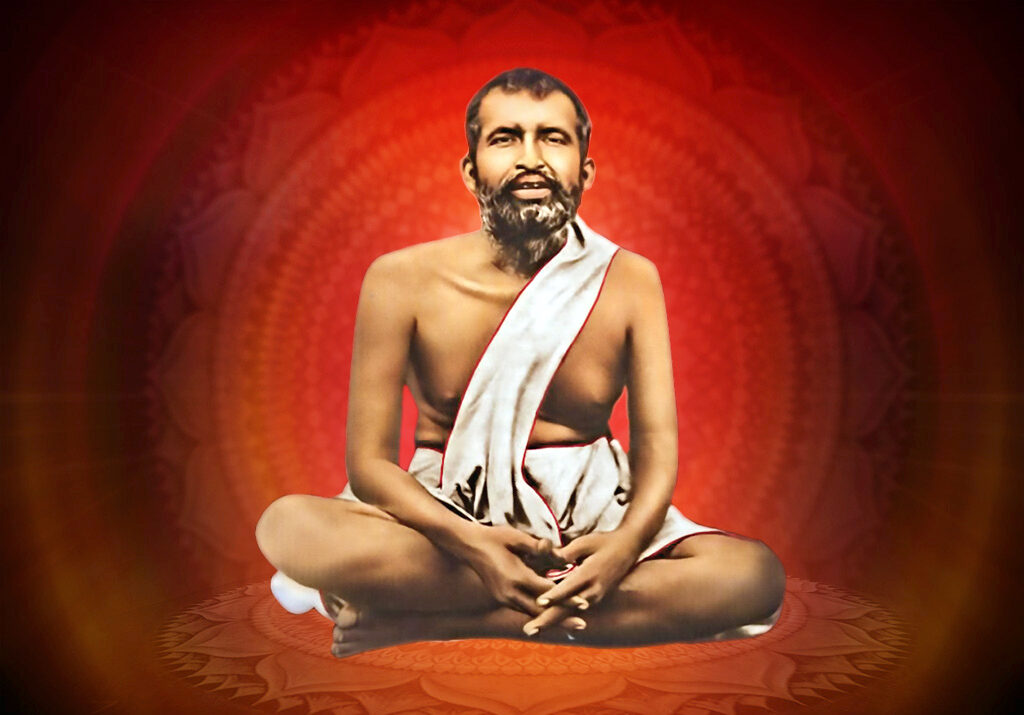
Among the most famous Indian philosophers, Ramakrishna Paramahamsa stands out for his profound spiritual insights. His life and teachings have been translated into over 80 languages, illustrating his widespread influence. Devoted to the goddess Kali, Ramakrishna explored various religious practices and advocated the unity of all religions, suggesting that different paths lead to the same divine truth. His followers view him as an avatar due to his profound spiritual experiences from a young age. Swami Vivekananda, his principal disciple, played a crucial role in popularizing his teachings both in India and the West, cementing Ramakrishna’s legacy as a central figure in modern Indian spirituality.
2. Swami Vivekananda
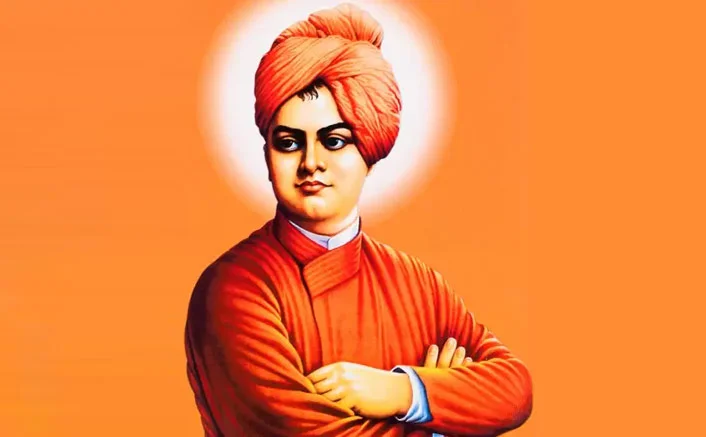
Born Narendranath Datta, Swami Vivekananda was a key figure in introducing Yoga and Vedanta to the Western world. As a Hindu monk, religious instructor, philosopher, and author, he significantly contributed to the global recognition of Hinduism. Regarded as the father of Indian nationalism, Vivekananda’s speeches and writings helped establish Hinduism as a major world religion in the 19th century. His impactful address at the Parliament of the World’s Religions in Chicago earned him acclaim as a divinely inspired orator. In India, his birthday is celebrated as National Youth Day, honoring his enduring influence on Indian culture and philosophy.
3. Adi Shankara
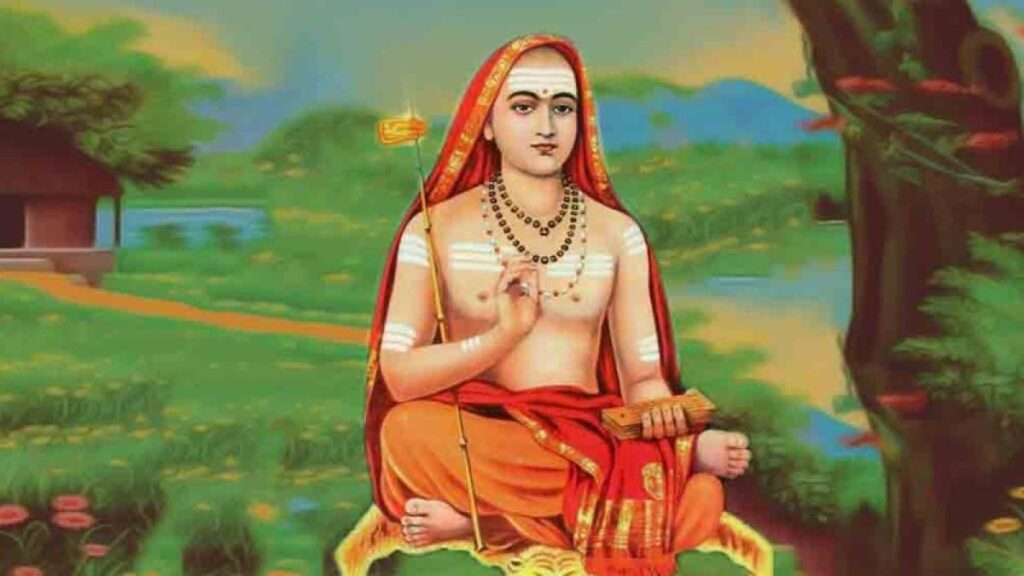
Adi Shankara is a pivotal figure in Indian philosophy, especially known for his role in Advaita Vedanta. As a Vedic scholar and Acharya, Shankara played a crucial role in revitalizing Hindu dharma during a period of religious flux. His philosophical teachings emphasized the non-dual nature of reality and the unity of the divine. Shankara’s establishment of the Dashanami monastic order and his efforts in reconciling various sects of society through the introduction of the pancayatana worship system have left a lasting impact on Hindu practices and institutions.
4. Vyasa
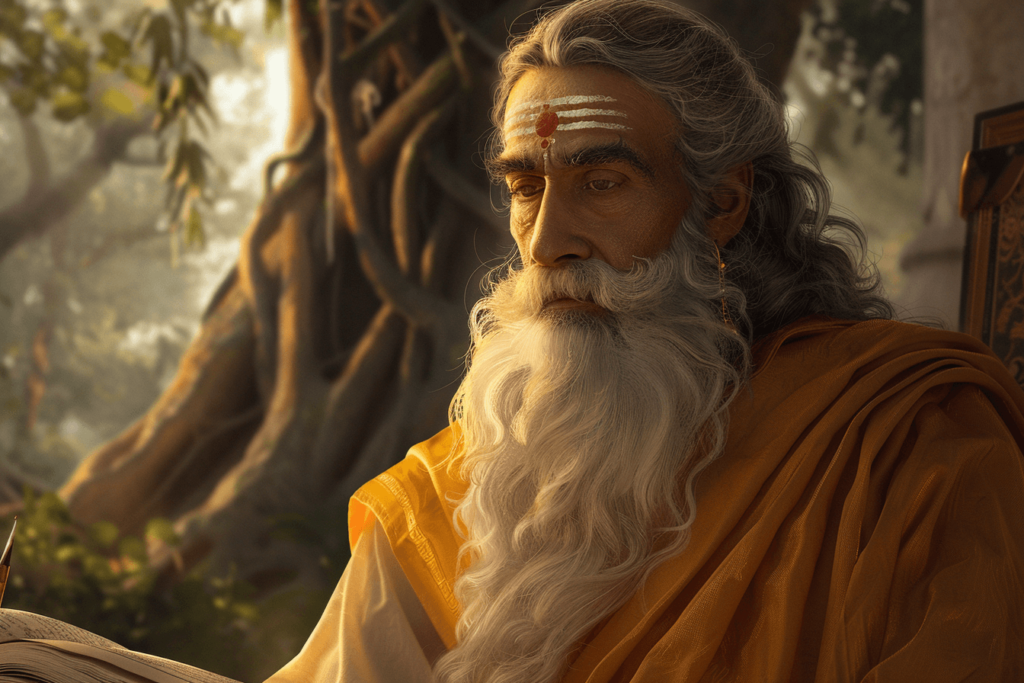
Vyasa, often revered more as a saint than a philosopher, made substantial contributions to the Vedic tradition. Traditionally credited as the author of the epic Mahabharata, Vyasa’s role in classifying and compiling the Vedas into four distinct works is of immense significance. He is also known for his compilation of the Eighteen Puranas and the Brahma Sutras. Many Hindus regard Vyasa as a partial incarnation of Lord Vishnu, and his teachings continue to be influential in the practice of Hinduism, with Vyasa being considered one of the immortals in the current Kali Yuga.
5. Chanakya
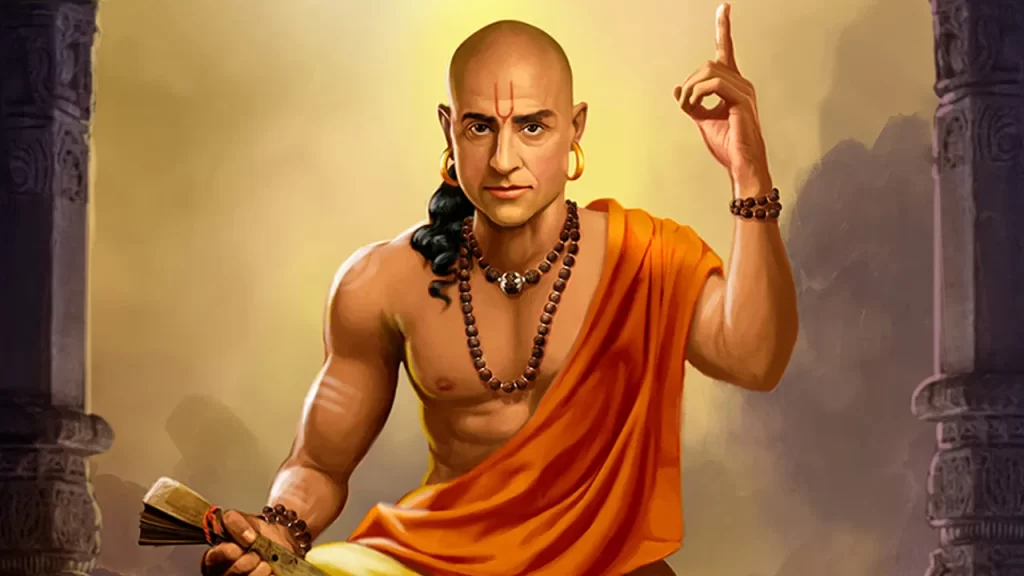
Chanakya, also known as Kautilya or Vishnugupta, was an ancient Indian philosopher, economist, and political strategist. Born in 371 BC, Chanakya is celebrated for his role in establishing the Mauryan Empire and his contributions to political science and economics. His seminal work, the Arthasastra, remains a crucial text in the study of management and governance. Chanakya’s insights into political strategy and economic principles continue to be relevant, making him a foundational figure in Indian political thought.
6. Rabindranath Tagore
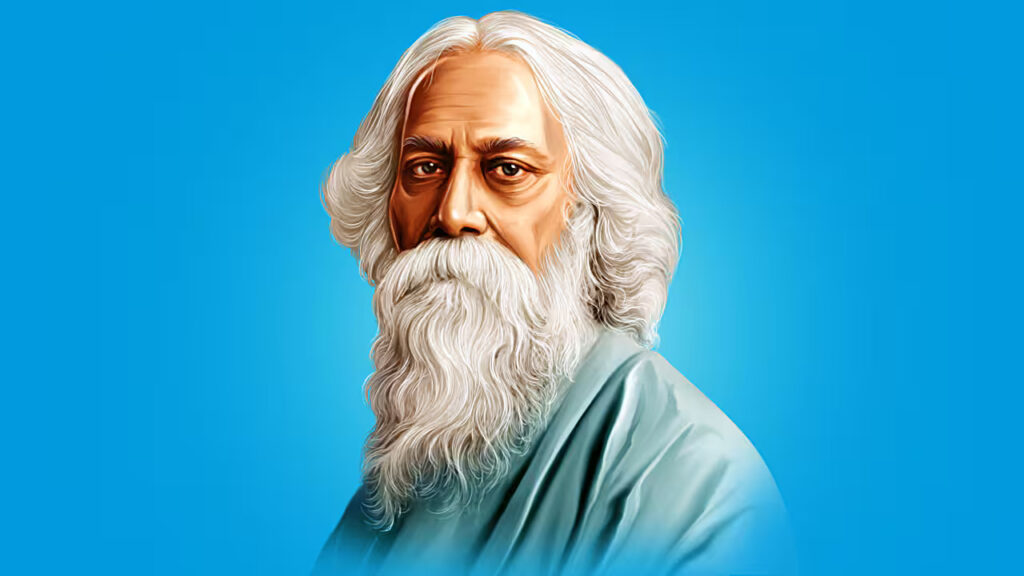
Rabindranath Tagore, born in Kolkata in 1861, was a multifaceted polymath known for his contributions to literature, art, and philosophy. As the author of India’s national anthem and a Nobel laureate in Literature, Tagore’s influence extends beyond borders. His poetry and philosophical writings, particularly in works like Gitanjali, reflect a deep engagement with both Indian and universal themes. Tagore’s literary and philosophical contributions have significantly impacted Bengali literature and music, earning him a revered place among the world’s great thinkers.
7. Dayananda Saraswati
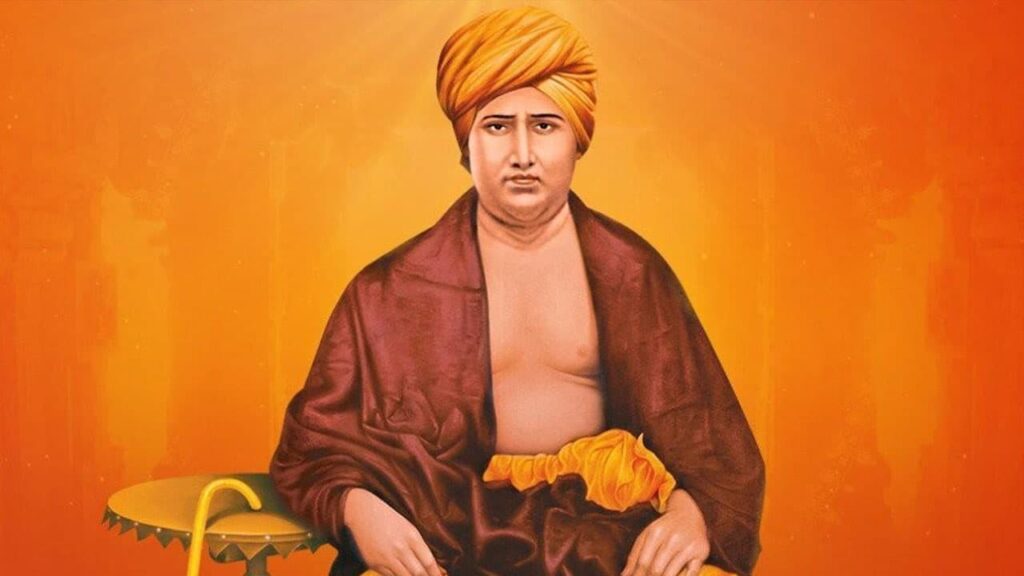
Dayananda Saraswati was a prominent Hindu philosopher and social reformer who founded the Arya Samaj. His advocacy for the Vedic doctrines of karma and reincarnation, coupled with his opposition to social practices like untouchability, marked him as a significant reformist in Hinduism. His influential work, Satyarth Prakash, emphasized the philosophical teachings of the Vedas and played a crucial role in the Hindu reform movement. Dayananda Saraswati’s efforts in modernizing and revitalizing Hinduism earned him recognition as one of the architects of modern India.
8. Gautama Buddha

Gautama Buddha, originally a Hindu prince, renounced his royal life to pursue spiritual enlightenment. In the 6th century BCE, he founded Buddhism, a major world religion that continues to influence millions. Buddha’s teachings, known as Dharma, focus on the principles of cause and effect, mindfulness, and the path to liberation from suffering. His insights into human nature and the nature of reality have had a profound impact on spiritual and philosophical thought across Asia and beyond.
9. Jiddu Krishnamurti
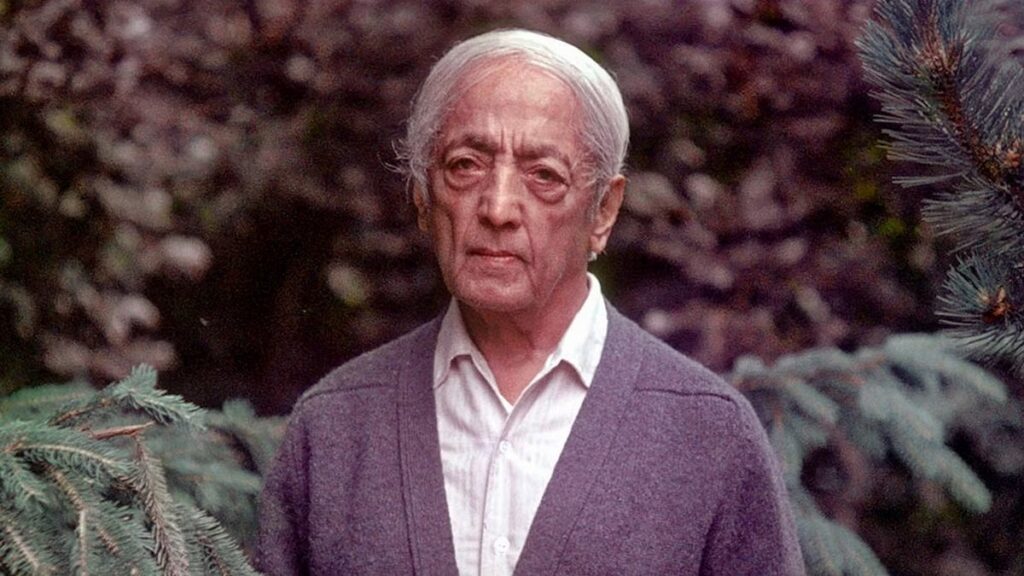
Jiddu Krishnamurti was a renowned Indian philosopher and spiritual teacher known for his radical ideas about truth and self-discovery. He rejected traditional religious and philosophical structures, advocating instead for a direct, personal exploration of truth. His emphasis on psychological inquiry, choiceless awareness, and cultural conditioning challenged conventional beliefs and encouraged individuals to seek understanding independently. Krishnamurti’s extensive writings and talks continue to inspire and provoke thought across the globe.
10. Ramanuja
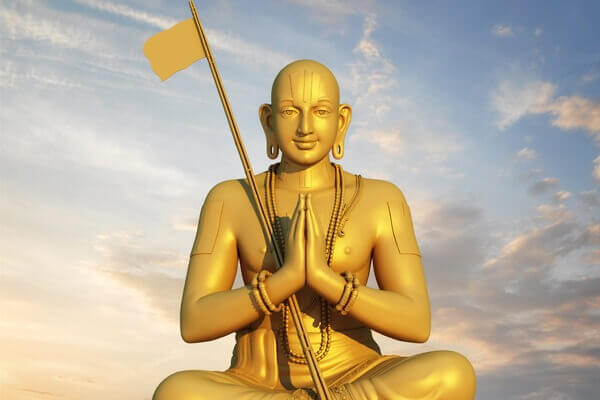
Ramanuja, also known as Ramanujacharya, was a significant philosopher and social reformer in the Vaishnavism tradition. Born into a Tamil Brahmin family, he made notable contributions to the understanding and practice of devotional Hinduism. Ramanuja’s teachings emphasized the sacredness of nature and the divine presence in all aspects of life. His efforts in promoting the Bhakti movement and his interpretations of the Vedas have left a lasting legacy in the practice of Vaishnavism.
Conclusion
The famous Indian philosophers highlighted above have profoundly shaped the philosophical and spiritual landscape of India and the world. Their teachings and writings continue to offer valuable insights into the nature of existence, morality, and spirituality. By advocating ancient Indian principles and engaging with the broader global community, these philosophers have made significant contributions to human knowledge and understanding. Their enduring influence serves as a testament to the rich intellectual heritage of India and its ongoing impact on the world.
